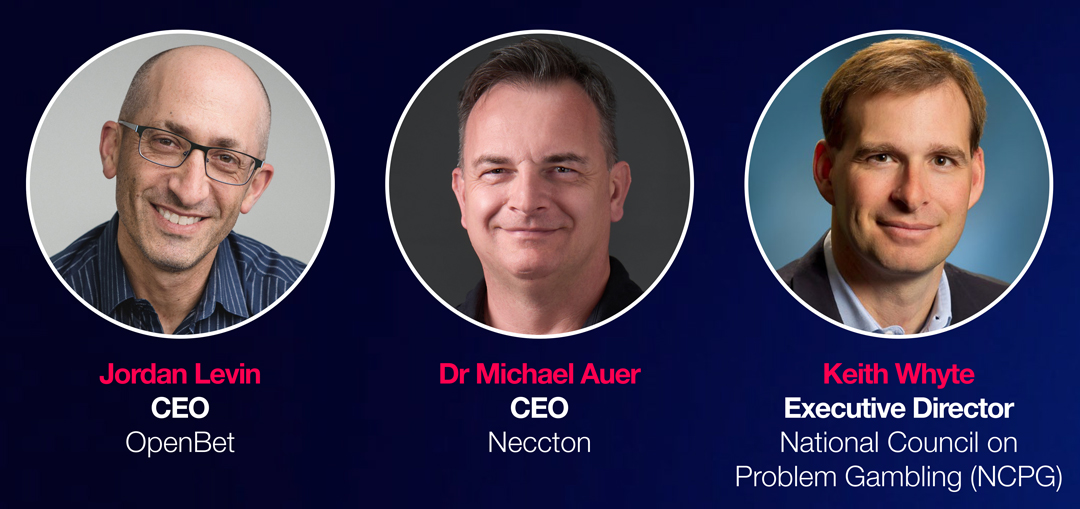Operators should be requiring real-time player data, as a key factor not only in identifying possible AML/CFT issues, but also in the interests of player protection and mitigating problem gambling.
That was one of the primary takeaways from a panel organized by sports betting content, platform and service provider OpenBet.
The provider on Tuesday announced its new acquisition of responsible gaming, anti-money laundering and fraud detection technology company Neccton. The group analyzes data that online platforms produce and produces intelligence from the data – able to track length of gaming sessions, frequency of deposits, and other key indicators not only of problem gambling but possible anti-money laundering breaches or fraud attempts.

OpenBet’s CEO, Jordan Levin, notes that in 2022 alone, the industry saw some $250 million in fines for responsible gaming, AML and compliance failures.
“Operating in a highly-compliant, highly-regulated fashion, is the way to build long-term sustaining interest,” notes Levin, pointing out that “governments are taking notice and [dishing out] more than just slaps on the wrist”.
Data is more important than ever
“Operators who do their job properly, who collect info from players, do due diligence – they have an audit trail from the beginning to the end and can argue to the regulator about why they’ve made certain decisions,” notes Neccton CEO Dr. Michael Auer.
Coming from a background in psychology and publishing numerous papers on the issue of problem gambling and gambling behavior, Dr. Auer points out that data can quickly be used to identify problem gambling behavior, and maybe more importantly – communicate this to the players themselves.
“There a number of simple indicators that can be monitored in real-time […] Numerous deposits being made soon after signing up can indicate signs of impulsivity, loss of control […] You can tell almost from the beginning, if you look at the first weeks of behavior after registration, you can predict very accurately what the person will do in six months’ time”.
Operators can then move on this data to connect with the players and provide passive warnings of their problematic behavior.
The data can also quickly be leveraged to identify cases of fraud or money laundering attempts, via small deposits which are quickly withdrawn or higher win rates which could indicate fraud.
Getting out ahead of the issue
OpenBet’s CEO points out that the industry could hold the key to avoiding heavy-handed regulation.
“There’s a lot of case studies […] where legislators and politicians end up dictating requirements, and they don’t understand the industry. The more the industry can do – in the US and other emerging markets – taking tools like this – the better off the industry will be when we talk about long-term sustenance,” notes Levin.
Keith Whyte, Executive Director for the National Council on Problem Gambling, in the United States, notes that “showing that operators are truly going to be able to self-regulate would be a huge step forward”.
However, “you can’t put all the responsibility on the industry – on operators and vendors. If gambling is a public health issue, there needs to be broad-based education at the individual level, the family level,” notes the director, pointing to similar issues like drunk driving and smoking, and the campaigns used to mitigate them.
OpenBet’s CEO concurs, noting that “the headline-grabbing fines should be preventable by a combination of tools, culture and controls”, while also noting that “ultimately the operator is the one that needs to take the responsibility, but it’s up to us to provide tools and advice to operators for best practices”.
Keith Whyte meanwhile notes that “building sustainable customers is better LTV – lifetime value,” and that increased regulation helps not only responsible gambling but also economic success for operators in the industry.
And a push for operators to be required to have real-time monitoring of player data should be mandatory, notes the council director, saying regulators should be pushing vendors to do so sooner rather than later.
“In the modern gambling space, there’s no reason not to use the data we’re collecting to better balance [all sides], notes Whyte.























